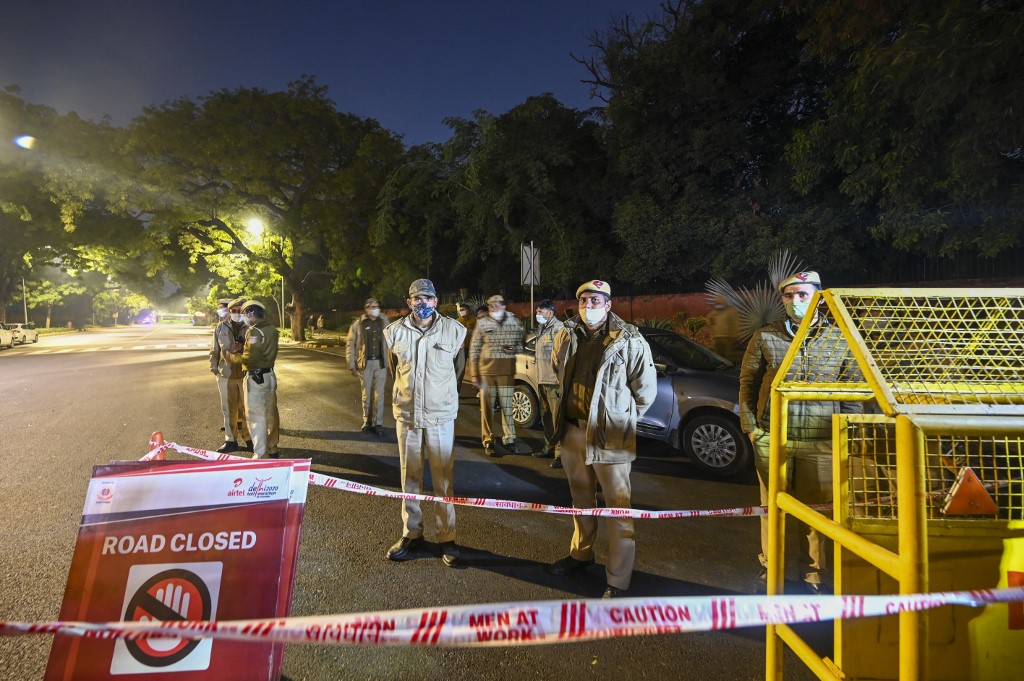New Delhi: Investigating agencies are yet to identify any suspect in the minor blast near the Israeli Embassy, a source said Sunday. However, the source said that all angles were being covered in the probe. The Delhi Police covered the blast site Sunday near the Israeli Embassy here with a white-coloured tent. This was done to prevent the spot from being tampered with as the adjacent road us opened for traffic.
The APJ Abdul Kalam Road was closed for nearly two days after the IED blast Friday. It has been opened for general traffic now. Police also faced some challenges in collecting video footage. This is because most CCTV cameras in the area were not functional at the time of incident. Sources said the material used in making the bomb will be known after the report of the forensic science laboratory.
An envelope addressed to the Israeli Embassy and containing a note was found at the site of the blast, sources had said. A case has been registered and the Delhi Police’s Special Cell is investigating the matter.
The letter written in English mentioned the names of Gen Qassem Soleimani. He was the head of Iran’s elite Quds Force who was killed in a US air strike in January 2020. The letter also had the name of Iran’s top nuclear scientist Mohsen Fakhrizad. He played a crucial role in Iran’s nuclear programme and was assassinated near Tehran in November the same year, they said.
According to sources, police have questioned some persons including a few Iranian nationals and a cab driver. The latter had dropped two persons near the blast site just before the explosion. The details of foreigners who came to Delhi recently are being examined.
Teams from the National Bomb Data Centre (NBDC) of the NSG and Delhi Police’s Special Cell visited the spot for post-blast analysis Saturday. A senior officer said NBDC’s findings will be shared with the police team investigating the case.
Investigating agencies are checking Internet Protocol Detail Record (IPDR) of the area to check whether the suspected persons used internet to communicate instead of regular cellular call. They are also checking CCTV footage of the nearby hotels. The dump data of mobile calls, which were active hours before and after the blast, are also being examined.
